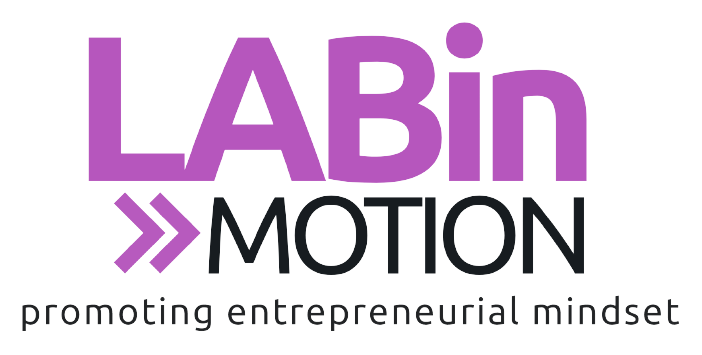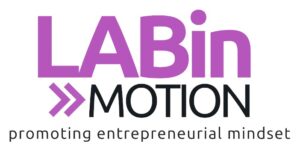The COVID-19 pandemic may have familiarized the world with telemedicine and remote clinics relatively recently. But the digital health industry had actually been undergoing revolutionary developments for quite some time. In fact, given the innovative work that the leading healthcare tech companies are doing, the healthtech sector is currently one of the most rapidly evolving fields.
According to survey reports [1], the global e-health market is expected to reach a net value of about $504 billion by 2025. Compared to the valuation in 2018, this is nearly a six-fold increase!
Take a look at some of the top healthcare tech companies transforming the way we view digital health services.
1Hinge Health
Hinge Health is a six-year-old startup that prides itself on being the world’s first digital platform dedicated to musculoskeletal (MSK) care. That is, the company specializes in joint and back pain treatment. Gabriel Mecklenburg and Daniel Perez co-founded Hinge Health in 2015 in San Francisco, California. Hinge Health operates as a teleclinic, catering to patients at all stages of MSK issues. In other words, Hinge Health offers health care services for joint and back pain prevention, post-operation management, and everything in between.
The startup has already achieved unicorn status and is actively fulfilling its mission to fight patients’ dependency on opioids and chronic pain medications by providing them with revolutionary solutions for pain control. Its digital solutions combine wearable sensors with live health coaching through a custom-built smartphone app.
Hinge Health partners with more than 300 employers and health plan companies across the US. It is also working with various Fortune 500 and public sector customers to increase its outreach and bring expert-validated care to millions of people suffering from chronic pain issues.
According to reports, the company has raised more than $426 million in funding so far [2]. A total of about 1,000 employees oversee its operations from offices spread strategically in San Francisco, Chicago, Minneapolis, and Portland.
2Paige
Headquartered in New York, Paige is an IT healthcare company that is using artificial intelligence for advanced research in the field of cancer pathology. The company was founded in 2018, but it gained a lot of traction recently in the wake of the coronavirus outbreak. This is because Paige has delivered exceptional performance in coming up with the latest findings related to COVID-19 and its interactions with other diseases, specifically cancer.
It has laid down strong foundations in the e-health industry by providing digitized resources like slides to health care providers. This offers a great advantage to clinicians and the supporting professionals who can no longer make themselves frequently and physically available at the clinical laboratories.
Paige had made incredible innovation in enabling users to benefit from its high-performance software that can read the data in more elaborate ways than researchers. The users can conveniently share the research and primary data without getting into the stress of physically transferring the slides.
Paige proudly announced a milestone in its path towards success by raising $20 million from Goldman Sachs and Healthcare Venture Partners [3]. This closed out its Series B funding at $70 million. In an interview, the CEO of Paige, Leo Grady, further spoke that the funds would be utilized in a variety of areas. The amount will be beneficial for hiring staff and expanding partnerships with pharmaceutical companies. The raised capital will also be used for developing Paige’s medical work related to pathology slides.
In July 2020, Paige raised more than $95 million from a number of investors, including Breyer Capital, MSK, and Kenan Turnacioglu. Thus, bringing its total funding amount to around $220 million. It’s worth noting how Paige managed to fight the challenges of raising money at a time when even the most well-established healthcare companies were crumbling under the crisis. Where various startups were experiencing progressive financial losses due to the lockdowns following the COVID 19 pandemic, Paige adapted to the new needs of the industry and positioned itself for success.
3Collective Health
Based in San Francisco, Collective Health is a 2013-startup that enjoys the hub tag ’emerging unicorn.’ Collective Health is different from most of the other leading healthcare tech companies in the sense that it focuses on employer-driven healthcare solutions. In other words, the entity is focused on providing self-funded employers with smarter alternatives to traditional health insurance.
Collective Health offers the world’s first integrated e-health system that enables professionals to administer health plans and control costs without compromising on the quality of care for their patients.
It optimizes the program strategy by bringing all the different pieces of healthcare onto a single platform. In 2019, Collective Health announced a Series E round of $205 million funded by SoftBank Vision Fun to propel its expansion into the healthtech industry.
4Village MD
VillageMD is a Chicago-based startup that is serving its mission of supporting doctors and medical staff through cutting-edge technology. The organization covers a wide range of healthcare, including psychological therapy and disease education. It is also dedicated to upgrading the living conditions of patients by assisting medical staff with intelligent tools to efficiently reach out to such people in need.
VillageMD’s proprietary system, DocOS, is a healthtech solution that offers additional advantages to patients and clinicians by covering many aspects of primary health care. DocOS helps in efficiently managing multiple tasks related to the company’s provider-led integrated care groups, patient-centric support, and post-hospitalization services.
The lead data scientist of the company, Tambellini, has been managing his team to successfully bridge the gap between healthcare services and technology. His group of productive staff members has started leveraging AI and device-learning to provide enhanced support for clients.
“It is remarkable that the techniques I use can have a positive impact on a fellow human being,” Tambellini said in an interview.
Ending Note
Putting aside the revolutionary services they are providing, it’s not too surprising to note that most of the world’s leading healthcare tech companies are based in the US. After all, the Asia Pacific region hasn’t always been at the forefront of healthcare technology. However, that is definitely changing thanks to healthcare IT startups like Mesh Bio and X-ZELL (Singapore), Halodoc (Indonesia), Naluri Life (Malaysia), and Doceree and Remidio Innovative Solutions (India).
References:
[1] https://www.statista.com/statistics/1092869/global-digital-health-market-size-forecast/









